Live Mandolin Hangout with Mike Marshall Last Tuesday
Guitar Lessons with Andreas Oberg: Jazz Comping
In this sample lesson from his online guitar school, Andreas Oberg breaks down jazz guitar comping. An abbreviated term for accompanying, comping refers to playing the rhythm part while someone plays the lead melody or solo. Although it's not the main focus of the music, it's not something to be taken lightly. Comping is an integral part of any group performance.
It is very important to find the right balance when it comes to jazz comping. This means taking some space for yourself, but not too much - the idea is to back up the soloist while playing just enough… without it being too much. Good comping will enhance the lead guitarist and help to build up intensity in the music. Bad comping however, will distract from the melody and derail the soloist.
Understanding syncopation and where to land your strumming is a crucial aspect of jazz guitar comping. Syncopation is an art unto itself, so it is very important to learn how to use it in your jazz comping. If you just land your notes on the same standard beats every time, like quarter notes for example, it will sound extremely boring to the listener.
Martin Taylor on the cover of Fingerstyle 360 Magazine
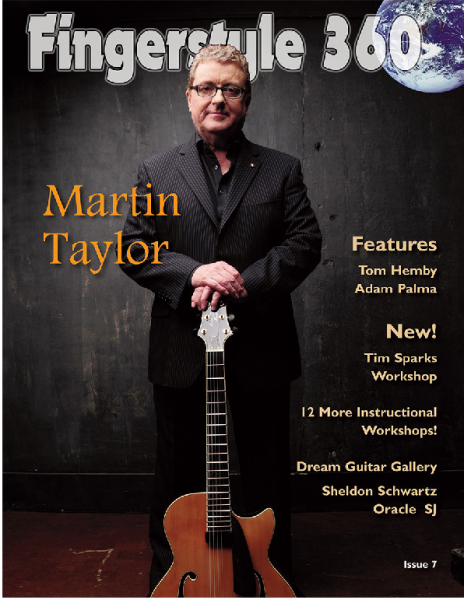
"If you get too caught up in the theory you can switch your instincts off. Instead of asking if this note works with this chord just listen to it. How does it make you feel? Does it feel right? If it’s wrong ask yourself why it doesn’t work and then you can apply the theory but not before. Just use your instincts." - Martin Taylor
Congrats to Martin Taylor on making the cover of Fingerstyle 360 magazine, featuring a nice in-depth interview with him where he talks about teaching guitar online at ArtistWorks among other things. Click here to download a PDF version of the magazine from the Fingerstyle 360 website.
Congrats to our IBMA Nominees & Bluegrass All-Stars
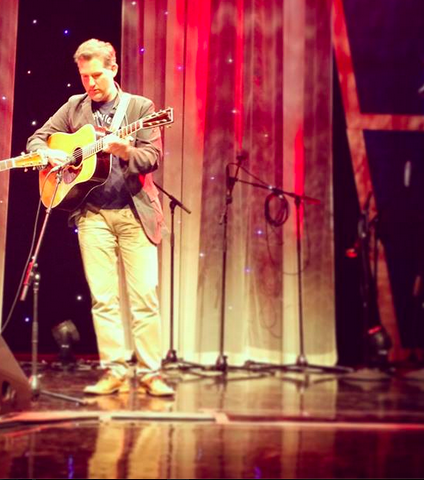
ArtistWorks would like to congratulate Bryan Sutton for taking home his 8th IBMA Award for Guitar Player of the Year!
We are thrilled by Bryan's accomplishments as an artist and are proud to have him teaching flatpicking guitar to students around the world alongside the other Academy of Bluegrass all-stars: Mike Marshall, Missy Raines, Darol Anger, Andy Hall, and the incomparable Tony Trischka.
So much of what we do is spent focusing on the instruction that the Academy of Bluegrass artists are providing here -- and that's obviously our mission, but in the spirit of the now concluded 2014 IBMA awards, we'd like to focus for just a moment on the impressive careers of these amazing musicians. We're very fortunate to have them all here.
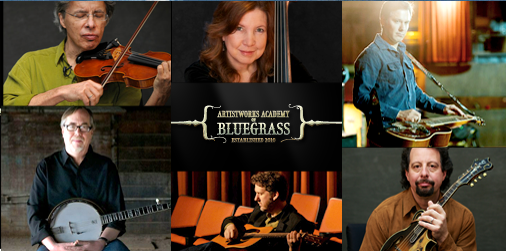
Bluegrass Music at IBMA
ArtistWorks is proud to be a part of the World of Bluegrass at the annual IBMA Award Show - taking place in Raleigh, North Carolina this week! We had a chance to speak with some of our bluegrass instructors about what the International Bluegrass Music Association means to them.
"I'm proud to be a part of this IBMA community. I'm teaching bluegrass mandolin through the ArtistWorks Academy of Bluegrass. I grew up playing bluegrass, it was my first love and it will always be near and dear to my heart. No matter where I've gone musically, I always reach back for those roots and the things I learned early on in my career." - Mike Marshall
"I love the IBMA, it's where everyone gets together. You see people that you haven't seen for a year, you jam, you hang out, it's just a great experience and it reminds us where we've been as bluegrass musicians and also where we want to go." - Bryan Sutton
"I can't even remember a time when I didn't know what bluegrass was. It feels so great to be part of what's happening today as well, and IBMA is such a great opportunity because I get to see old friends, meet new friends, and just get excited about where the music is going and what's happening next." - Missy Raines
5 Tips To Get Your Banjo Playing Out Of A Rut
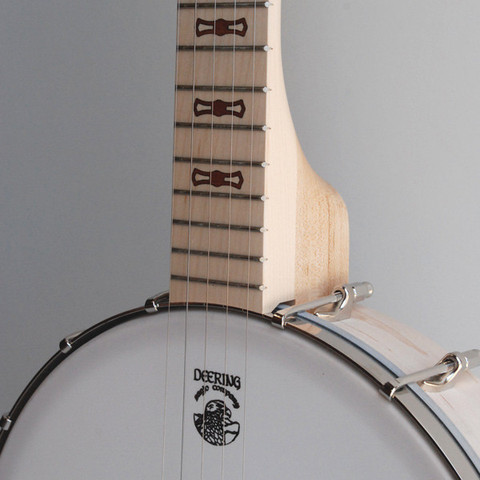
It happens... sometimes it's hard to get anywhere when you're playing. Deering Banjos has published a nice little list of tips to help get the creative juices flowing. ArtistWorks students are at an advantage with access to all these lessons and Video Exchanges®, so use these whenever you need a little extra inspiration. Click here to read
Martin Taylor: The Secret of Internalizing Music
"I never write with the guitar, I just imagine it in my mind." - Martin Taylor
"When it comes down to it, this [guitar] is just a piece of wood - the music doesn't come from there, the music comes from within us. I often think of the guitar as the loudspeaker of my mind. The reason I play guitar… is because it's the nearest way I can get everyone to hear the music that's going on in my mind. It's the best way I can really express that. But when it comes down to it, it's a piece of wood - the music doesn't come from there, the music comes from within.
Bryan Sutton talks Hot Rize
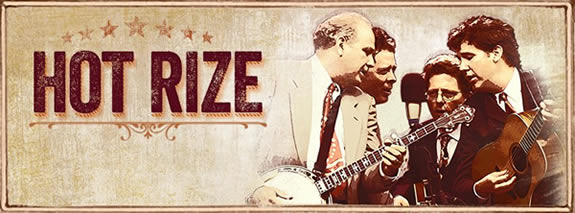
Hot Rize first hit the bluegrass scene in the late 1970s coming out of Boulder, Cororado. "I wasn't part of it then, I was 5 when they made their first record," says Bryan Sutton, who's been playing guitar for the legendary group for over 10 years now.
The original lineup was Tim O'Brien on mandolin, Nick Forster on bass, Pete Wernick on banjo, and guitar player Charles Sawtelle. Throughout the 1980s, Hot Rize became as big as a band could get for bluegrass at that time. Then at the height of their success, they disbanded. They later enlisted Bryan Sutton to play guitar with them after the tragic loss of Charles Sawtelle. We spoke with Bryan when he was in our studio recording new guitar lessons for his students here at ArtistWorks, wanting to get his unique perspective having gone from being a fan to being in the band.
"What they brought was a bit of a return to a tradition. It was the early 80s and you had a lot of very 80s type influence on bluegrass - things were getting a little louder, electric bass was being used. Hot Rize did have electric bass, but they also wore suits every time they did a show, and they sang around one mic which was really cool and retro at the time - nobody was doing that. Being from Colorado they kept poking at the Southeast, that was the big market to break for any bluegrass band, and being from Colorado they were sort of at an uphill battle.
Profiles In Online Learning: Classical Scholarship Winners

After the first ever ArtistWorks Classical Scholarship competition, we wanted to get in touch with the winners to find out more about their background playing music and also their experience with our online learning platform. We have already heard from our flute student, Arnold from Texas, and so we now are proud to present an interview with the remaining three winners: Taylor (clarinet), Ryan (trumpet), and Paul (violin).
How long have you been playing?
Taylor: I have been playing clarinet since the 5th grade and am now a senior in college, so this is my 12th year of playing!
Ryan: I have been playing trumpet for about eleven years now. I began in the 7th grade after being placed in brass class because percussion, which I signed up for was full. I am pretty happy with the way things have turned out.
Paul: I've been playing violin since I was six. My mother started giving me and my four siblings piano lessons when we turned four or five, but one day she saw an ad in the paper for a Suzuki program and asked me if I would like to take violin lessons. I'm glad that I said yes!
The History of Harmonica: Part 2
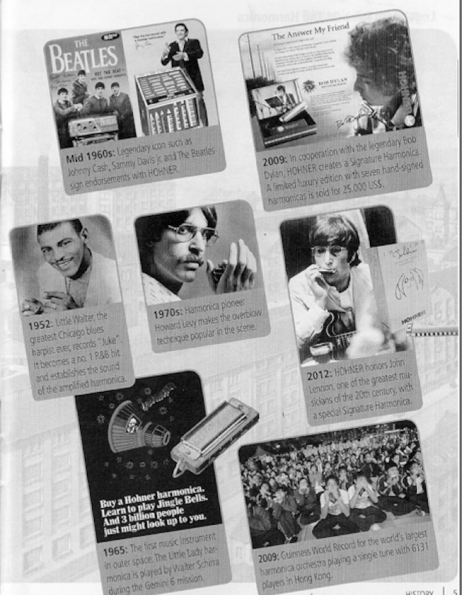
As we saw in our previous installment, up until the 1900s the harmonica was still developing as the instrument we know it as today. It wasn’t long after the Hohner company successfully established itself however that the harmonica became more widely used, particularly in blues and country music. For the first time in history, musicians were became famous for playing harmonica. One of the most influential early blues harmonica players was Deford Baily, who in 1927 started to perform regularly on the popular “Grand Ole Opry” show.







